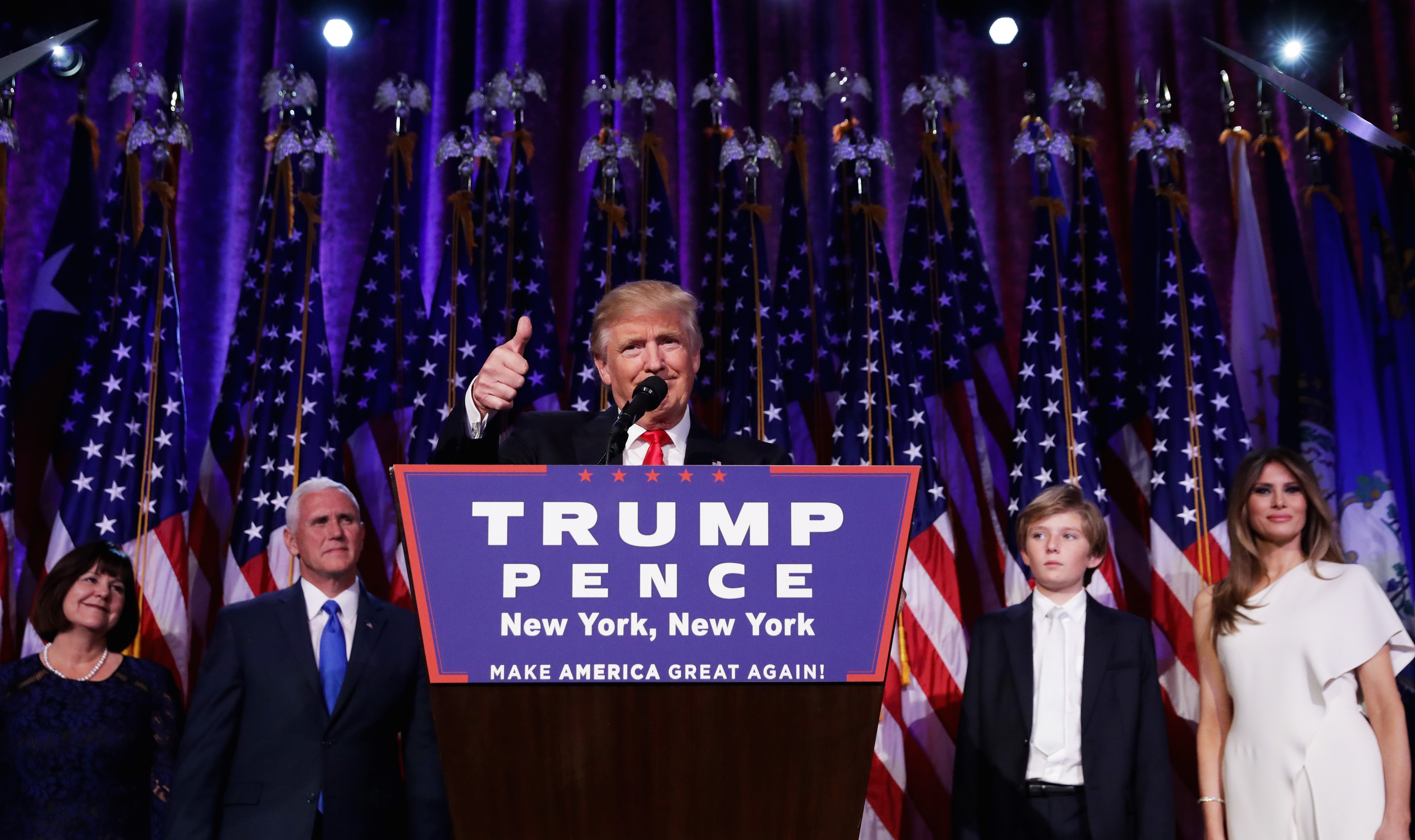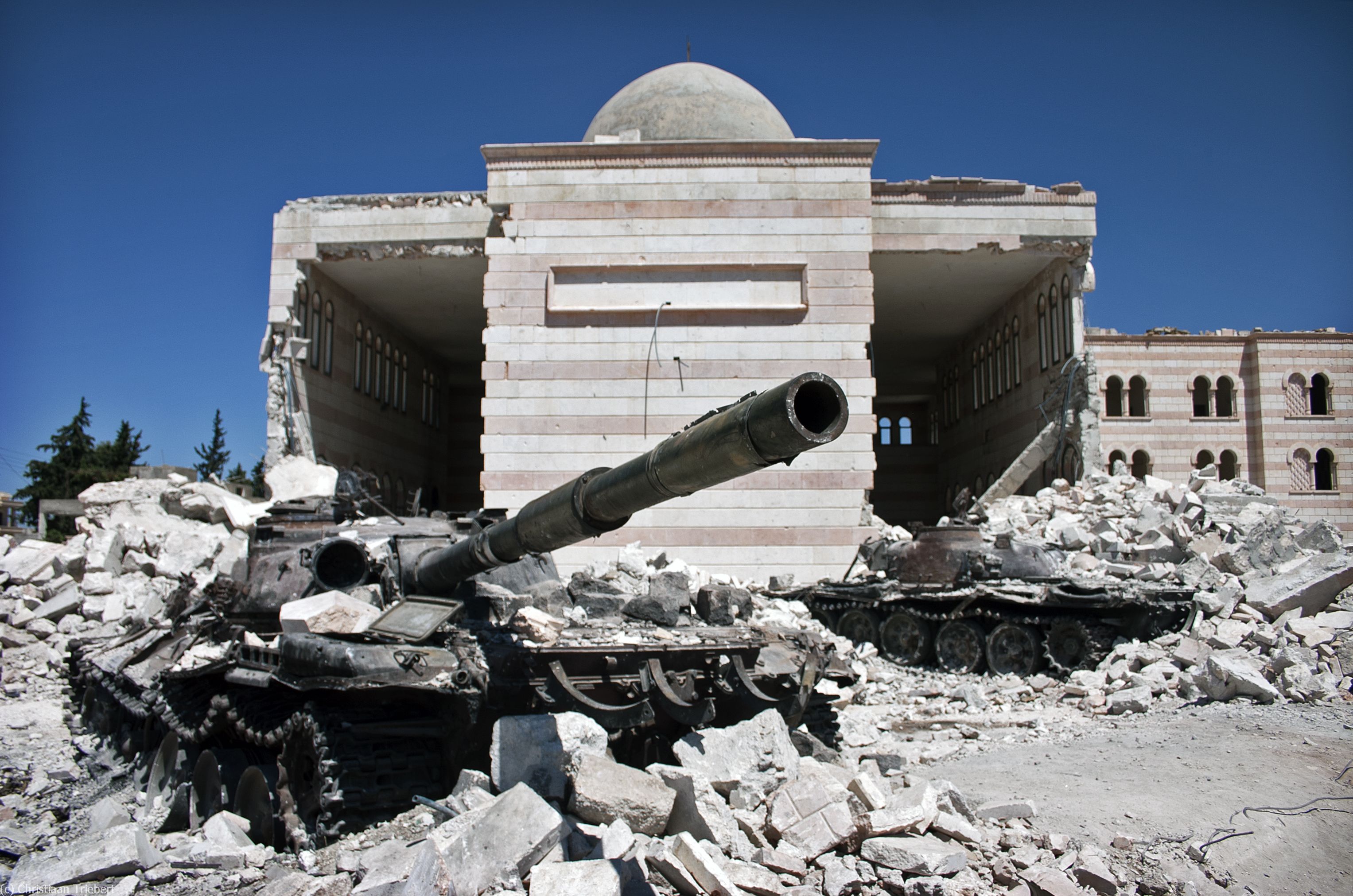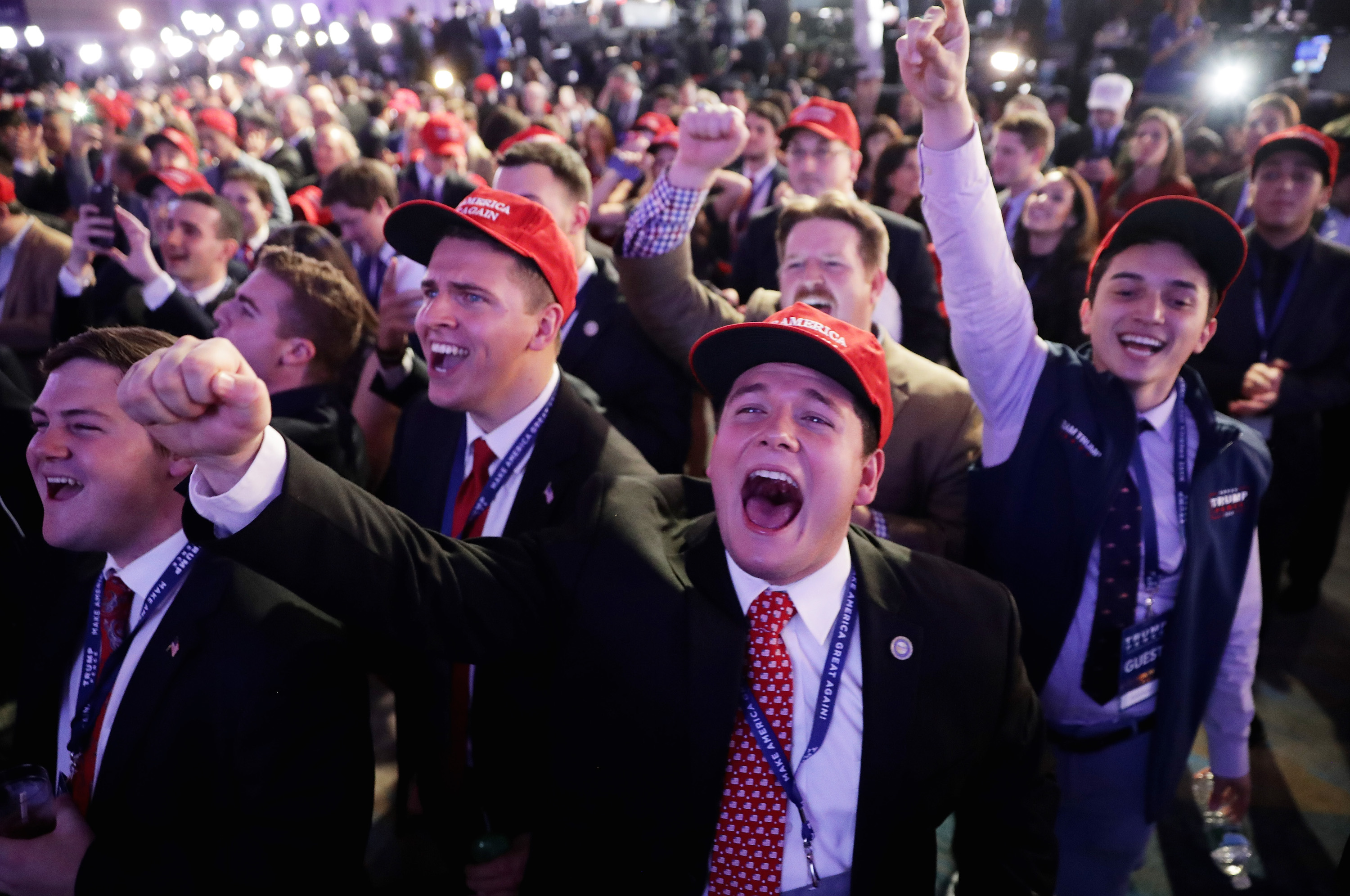New world order: Trump’s foreign policy

The only thing the world can expect is that everything is open to re-negotiation
Published 9 November 2016
First the Brexit vote, now this. Assessing the nature of President-elect Donald Trump’s foreign policy is very difficult.
He said little that was coherent or consistent about what he would do, except to indicate that pretty much everything about US foreign policy was open to re-negotiation and that he could change his mind on a dime (e.g. the value of the NATO alliance).
It is also an area in which he is appallingly inexperienced and, many from America’s foreign policy establishment would say, utterly unqualified.
As financial markets reacted in horror as the prospects of a Trump victory became clear on election night, so too must many of America’s foreign partners be scrambling to make sense of the deep uncertainty that this injects into their relations with America.

One feels for Mexico, in particular: As the old saying goes: “So far from God, so close to the United States.” Some of my American friends are contemplating the value of their US passports.
Implementing his policy agenda
It will help him to have Republican majorities in the House of Representatives and Senate, but the Republican leadership’s evident distaste for some of his more outlandish election campaign pronouncements suggest Congress may baulk at some.
The high level of partisanship that has marked the past two decades in America will almost certainly reach new heights as the culture wars rage anew.
The Senate will be the key battleground, where the Democrats may be able to take advantage of the filibuster to block policies they believe have limited public support.
This will be an especially challenging period for a President whose experience in foreign affairs is, according to some wags, confined to Miss World competitions.
Iran and climate change
The Obama administration had some major foreign policy achievements, including the nuclear deal with Iran and renewed American leadership on climate change.
The incoming President has given every indication that both will be junked (though to be fair on Trump, so did other Republican candidates).
For those foreign partners, not least China and the EU, who placed considerable faith in America’s willingness to lead in these areas, this will be deeply worrying.

Syria
America’s position in the Middle East has sharply deteriorated since the turn of the new century. Its dependence on the region’s oil is now far lower, but the strategic threats posed by Islamic extremism, endemic state failure and revived Russian adventurism are severe.
In Syria, a President Trump could well initiate more dramatic interventions against IS, possibly in collaboration with Russian forces and, by extension, the current Syrian regime.
There will be no chance now for Hillary Clinton’s ideas of a new no-fly zone and an increase in the flow of arms to Syrian rebels, who will be among the biggest losers.
Us alliances
As for the future of America’s unrivalled network of alliances, much may depend on who Trump appoints as senior advisors. One hopes some of the senior Republican establishment figures who disowned Trump before the election will now set aside their misgivings and agree to join the new administration. They might just convince Trump that it would be disastrous for the United States to cast doubt on the alliances in Europe and Asia in the pursuit of a “better deal”.
The trust on which long-established alliances depend can easily be undermined.
In both regions, US allies are in poor shape and will need convincing that the new President is a serious partner. Polls in various countries suggest that very large public majorities are appalled at the prospect of a President Trump, so that their governments may need to be seen to distance themselves from him.
Russia
Russian pressure on Ukraine and the Baltic states, slow growth, the rise of anti-immigrant populism and Brexit will continue to sow dissension and reduce Europe’s capacity to engage effectively with the United States.
President Vladimir Putin is a big winner from this.
The tpp is dead
It may have been dead anyway under a Clinton Presidency. It remains possible that the lame duck Congress will ratify it before Trump’s inauguration, but unlikely given its trashing in the election.
Political support for the proposed Transatlantic Trade and Investment Partnership (TTIP) in Europe had already fractured, and may not even have survived a Clinton presidency.

China
China’s growing willingness to test the resolve of America and its allies in disputed offshore waters makes it more difficult for any new President to reverse China’s perceived gains without risking dangerous confrontation.
Co-operation with China is also vital to deal – at least in a constructive manner – with North Korea’s growing missile capability and threat to America’s Asian allies and the mainland United States itself.
But the new administration will need China less as a partner on climate policy. The challenges in both regions are of an order that would test the limits of the most capable of US administrations, let alone this one.
Conclusion
This is a deeply disruptive election that has demonstrated that those who saw the popular backlash against globalisation as containable have been whiplashed by reality.
Trump’s capacity to disrupt long-held nostrums about America’s role in the world, as well as the trust on which so much depends, is substantial. It is not surprising that the internationalist parts of the American business and policy community have reacted very badly.
Some economists are predicting a global recession. The rest of us can only hope that President Trump will seek out wise counsel and temper his worst instincts.
If he continues to play to his newfound audience, the results will almost certainly be deeply damaging.
Banner image: President-elect Donald Trump delivers his acceptance speech at the New York Hilton Midtown. He is flanked by running mate Mike Pence and his wife Karen (left) and son Barron and wife Melania. Picture: Chip Somodevilla/Getty Image.
